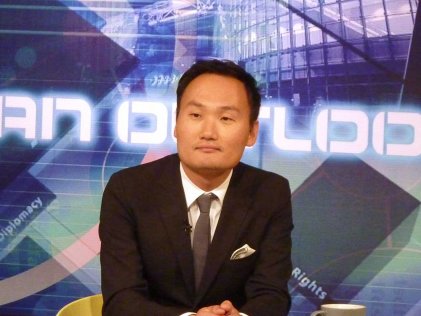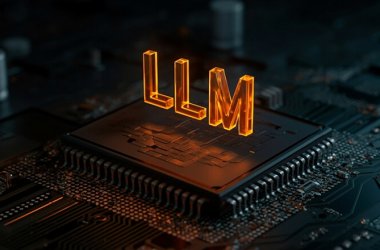CNME Deputy Editor Giorgia Guantario tuned into a virtual workshop organised by ICT leader Huawei to discuss 5G’s cybersecurity and roll-out.
The roll-out and security of 5G has been a very controversial issue in the past year – an issue that has only been amplified by the recent COVID-19 pandemic. The diatribe between the US and China has seen its epicentre in the form of Chinese-based ICT leader, Huawei, which has been suffering the consequences of the conflict between the two global superpowers.
While the US and China continue their trade war, the rollout of 5G in Europe has come to an alt and the continent has become the new battleground to determine who will win the conflict. While one might assume that the COVID-19 pandemic has also played a part in the slowdown of Europe’s 5G network, Hosuk Lee-Makiyama, Director of the European Centre for International Political Economy (ECIPE) explained this is not actually the case, during a virtual workshop organised by Huawei.
According to Lee-Makiyama, the 5G market is “basically split into two equal sizes” – China and the rest of the world. He explained, “Up to this point, I think it’s clear that China’s importance on the global market has been consolidated, both as a supplier through vendors like Huawei, but also due to the size of the market. The 5G market is basically split into two equal sizes: one market is China, which accounts for 50% of the global market, and the other half is the rest of the world.”

He continued by explaining that so far, only the US, Australia, Japan and South Korea significantly rolled out 5G outside of China – while Europe lags behind. The reason behind Europe’s delay, explained Lee-Makiyama, is not the recent COVID-19 outbreak, nor the much-debated security concerns of this technology.
“I’d like to make very clear that there has been a consistently lower demand in Europe for higher speed and lower latency, compared to North America and East Asia. This is also reflected by the fact that European consumers care a lot less about things like watching Netflix in HD, or doing their business on mobile. It’s a cultural issue which leads to a demand issue.”
However, Lee-Makiyama also attributes the delay to the operators, who prioritise higher dividends to investors and higher share prices compared to the speed of the network.
Discussing the cybersecurity concerns related to 5G, the ECIPE Director explained that the EU 5G toolbox plays a pivotal role in the situation. The toolbox has in fact identified a number of risks both on a technical as well as strategic level, explained Lee-Makiyama.
“Many, if not all of the technical issue mentioned in the EU toolbox, can be addressed by the vendors currently on the market. However, vendors cannot mitigate strategic risks, such as state interference in the supply chain, by themselves and countries can’t mitigate them through diversification. In other words, if there is a risk of state interference in the supply chain of the mobile vendor, it can only be mitigated by strategic measures, which can include total exclusion of said vendor.”
Lee-Makiyama also explained that the EU-China relationship follows a very different geo-economics logic than the one between the US and China. Europe has had a transactional relationship with much of Asia, including China, and network equipment has followed a different order of interest. While the US can’t rely on any home manufacturers, Europe has two major players, Ericsson and Nokia, coming from two neutral countries. Because of this, network equipment has become a commercial interest for Europe, which seeks balance, rather than bifurcation.
The economist concluded by saying that the UK’s decision “may not serve as guidance for how the rest of Europe might act”, because of the different economic interests of the two entities and the UK’s higher security authorisation capacity and active defence capabilities.
“I heard that an EU country applying for authorization for a piece of network equipment might take six months, which in this industry are pretty much equivalent to six years. European countries might simply decide it’s not worth testing network equipment, so they might just allow it or ban it directly.”
Dr. Ir Johannes Drooghaag, Business Management Consultant, also joined the workshop by addressing the need for collaboration to resolve cybersecurity issues related to 5G.
Dr Doorghaag believes that the companies involved in the roll-out of 5G should come together and establish common standards and solutions. This could be achieved by sharing threat analysis and conduct similar testing and validation in order to improve cyber threats and concerns.

The business consultant also gave his take on the UK situation with Huawei, explaining that there is no proof behind the security concerns towards the Chinese-based vendor, and that the issue might be related to the political relationship between the UK and China.
He said, “Huawei will not leave the market – they will continue to be a significant player. If we cut them off from technology development or from parts suppliers, we are going to create a significant threat for cybersecurity.”
The workshop was concluded by Andy Purdy, Chief Security Officer, Huawei Technologies USA, who once again called for assurance and transparency in the market.
“Security through collaboration is absolutely essential. Huawei always strives to provide greater transparency and we encourage our competitors to do the same. We need to encourage market forces to incentivize and raise the bar of assurance and transparency by establishing common business best practices.”





